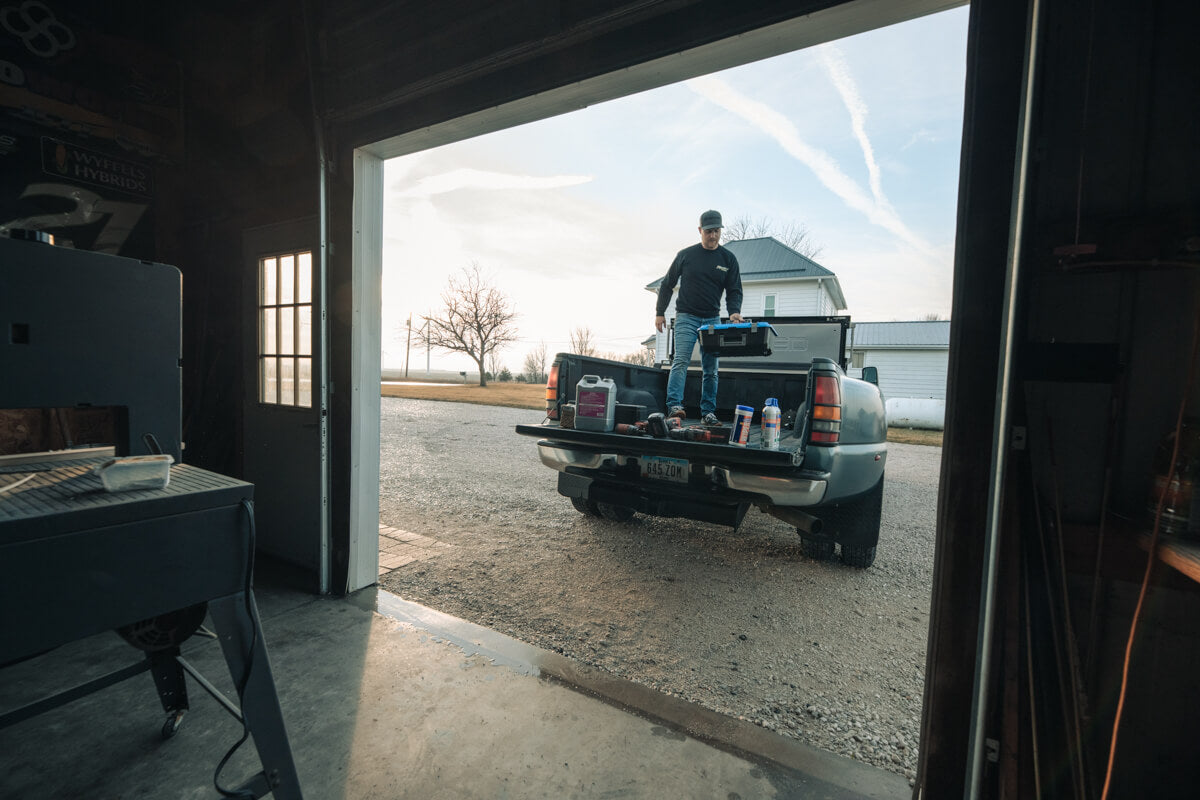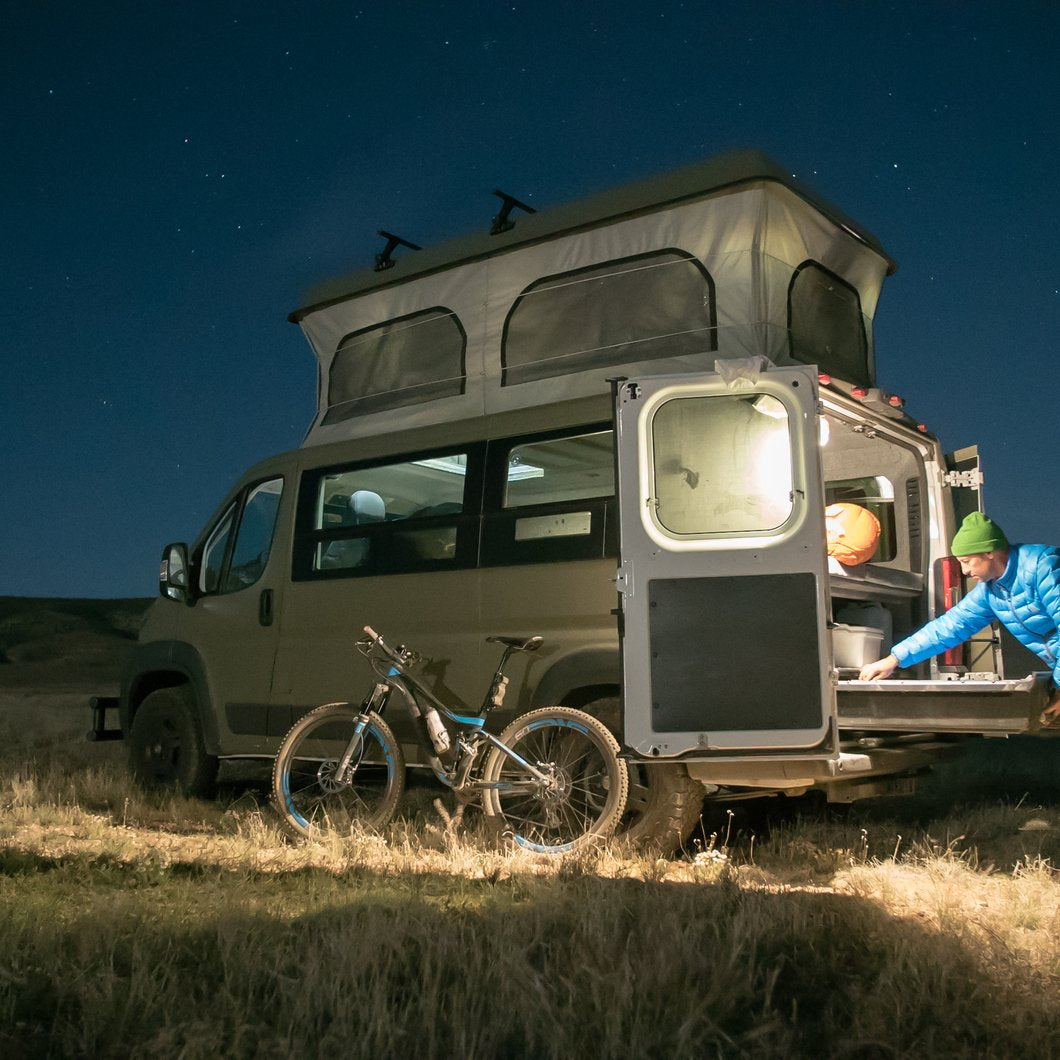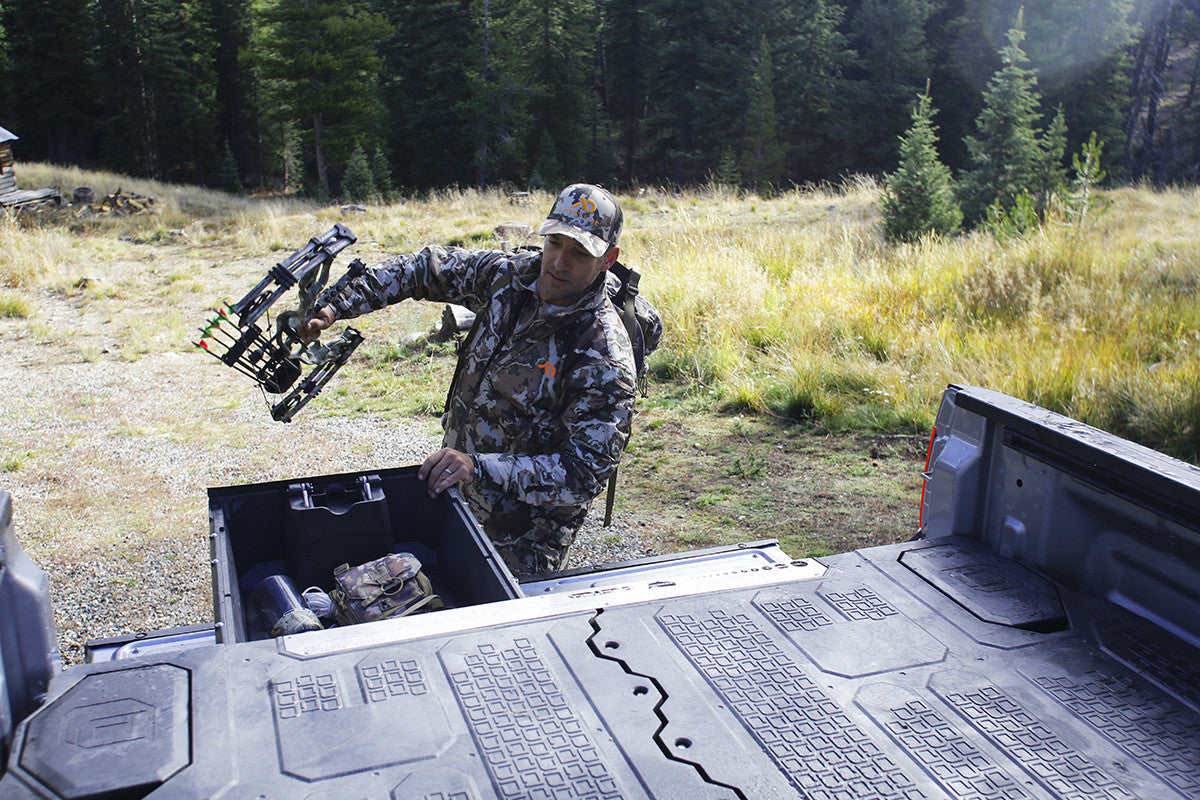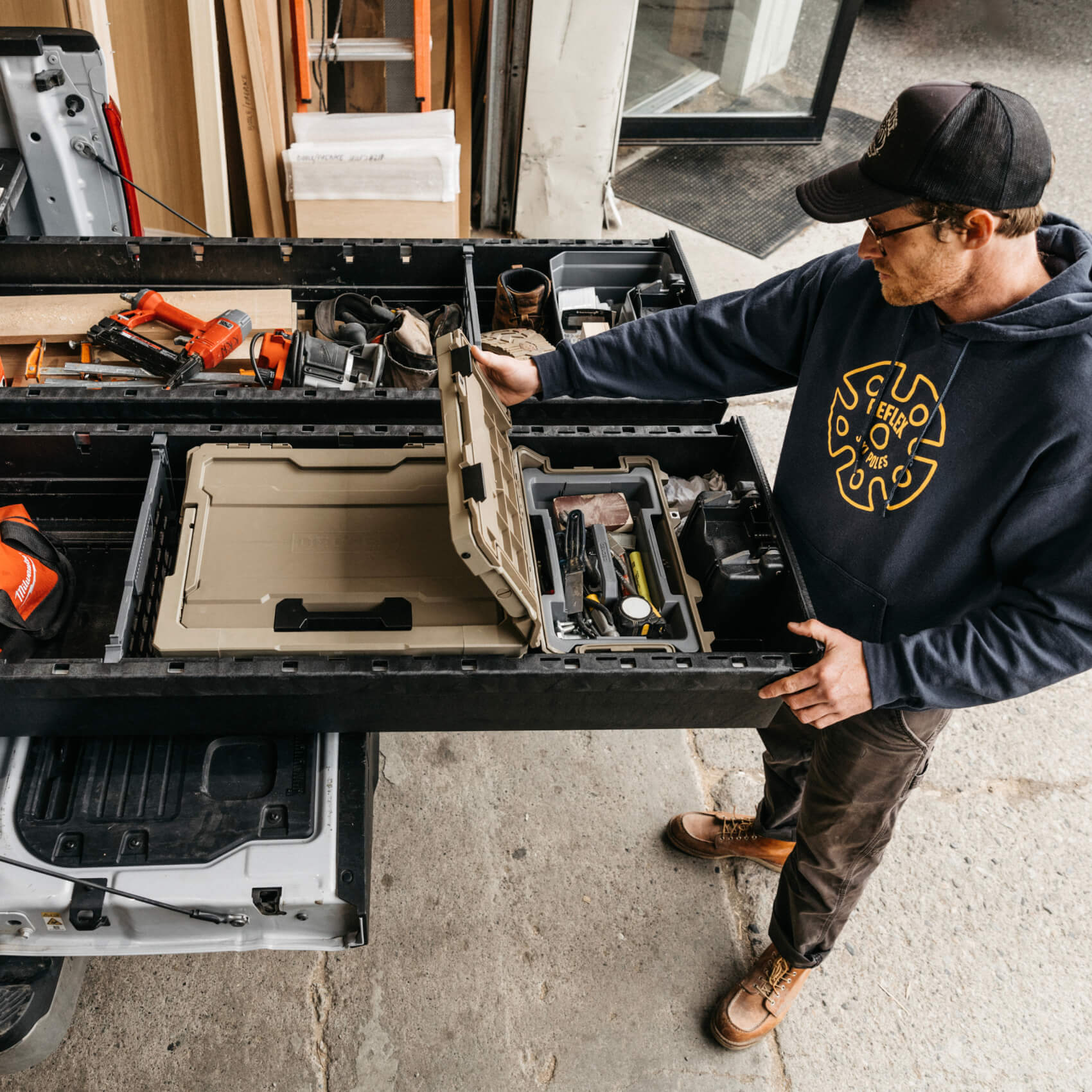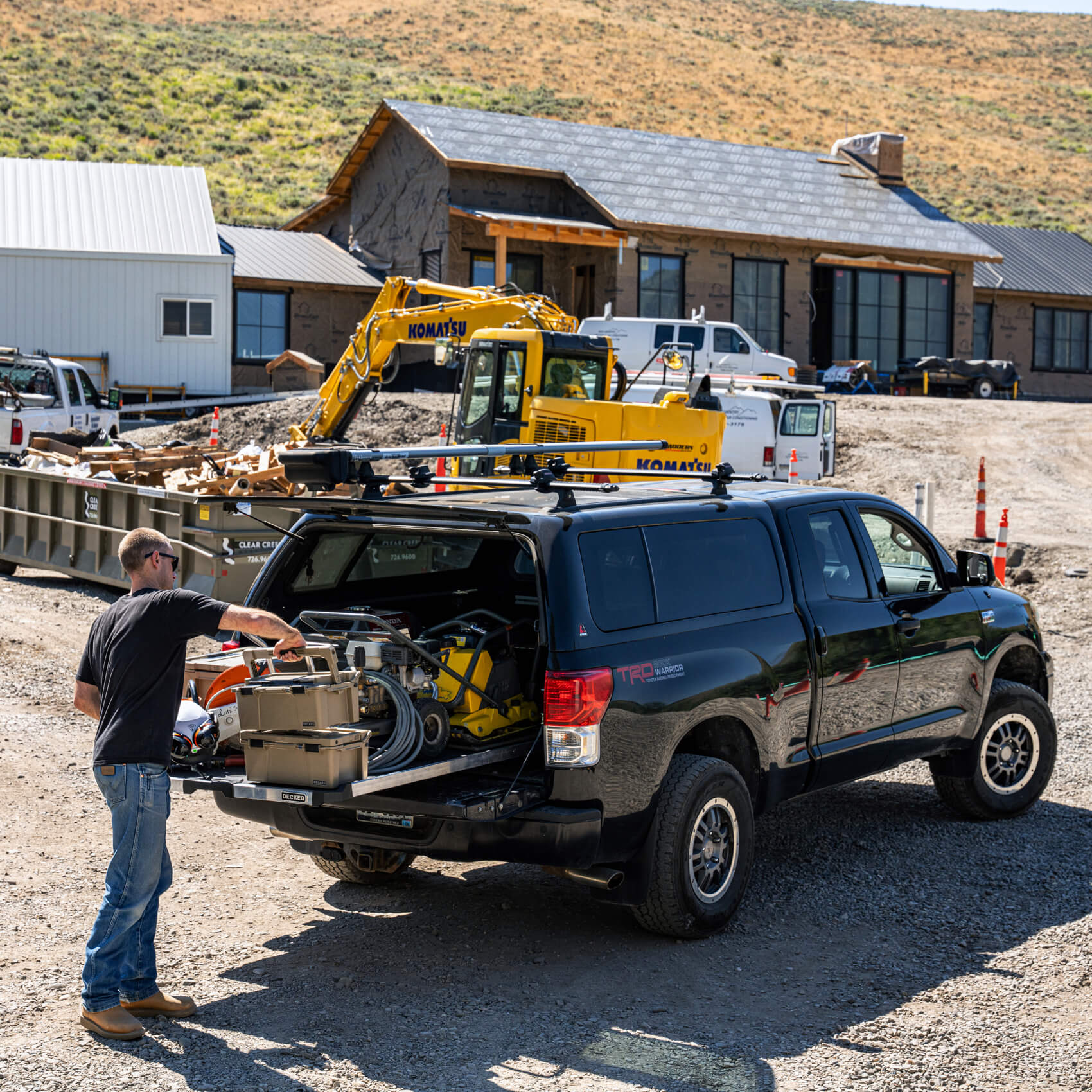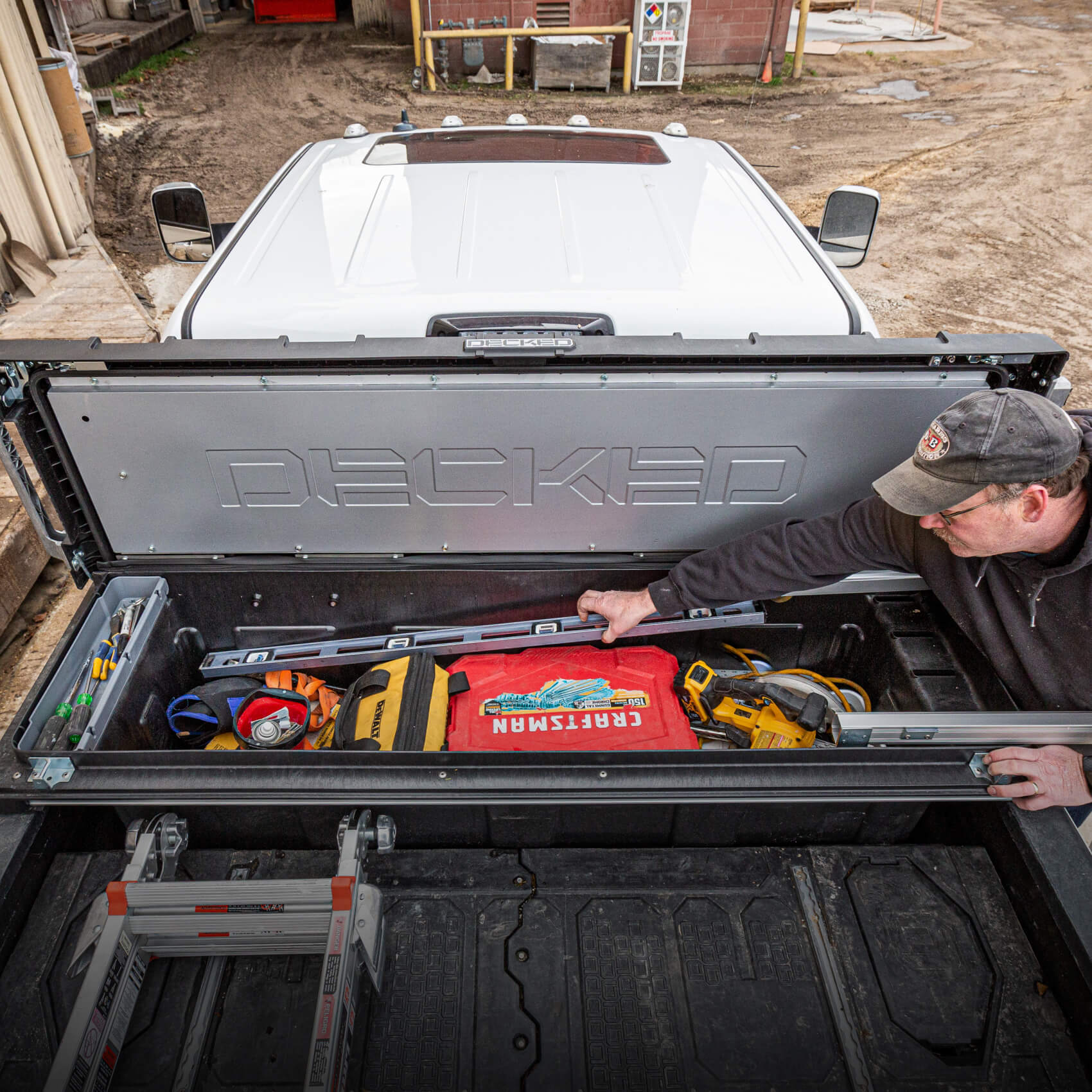Loyal to the Soil
Cam Reimer’s lifestyle literally revolves around dirt. The thirty two year old has probably thought about dirt more than most pedologists (soil scientist, for those of us who don’t use ten dollar words). As a part-time row cropper and full-time professional dirt track racer, Cam’s calling forces him to work and play in the black soil the midwesterner calls home. We caught up with him (or tried to, given his profession) between chores at his family farm and preparation for the upcoming racing season.

Kelley, Iowa is a small town. It’s in the dead center of the state and surrounded by cornfields so flat you can watch your dog run away for a week. It’s damn near perfect for dirt track racing. Catch a Saturday night race at Boone Speedway and you’ll understand why: the massively agricultural community shares an obsession with homegrown racing.

The connection between farmers and dirt mod racing in Iowa is undeniable, as Cam described: “I think the flexibility that farmers have and the amount of racetracks around here explains it. Farmers are hands-on people and these race cars need that. After crops go in the ground, the car numbers go up and we get more and more racers. You can see it in the grandstands and the pits with fans. Once the crops are in the dirt, everything gets bigger.” But bigger doesn’t mean high dollar, or especially lucrative. In an age where NASCAR and F1 drivers land eight digit salaries, these grassroots racers might compete for maybe a few hundred bucks and a plastic trophy when the checkered flag waves. They wouldn’t have it any other way.
“It wasn't climate-controlled, cold as heck in the winter and hot as hell in the summer. We raced that way for a long time. Every dollar I had went to racing those trucks."
Like most farm kids, Cam grew up ripping around on a dirt bike. He paid for his first race bike with his own sweat and tears and he never turned back (we’re actually pretty convinced he can only turn left). From there he moved on to off-road truck racing, and finally, dirt modified racing. For those uninitiated, “dirt mod” racing is a metal stampede, hell-bent and half sideways on a short track, sending sparks and parts into the stratosphere. The cars are lightweight, barebones, and fling more dirt than a Jack Russell burying a bone in the backyard. Hell, you can only see the first few laps unless you bring your own goggles. The rough and tumble racing style takes its toll on cars, and racers devote a lot of off the clock hours to keeping their cars in operating condition.

In their earlier racing days, Cam and his father did all of their racing preparation out of a farm shed after the day’s work was finished: “It wasn't climate-controlled, cold as heck in the winter and hot as hell in the summer. We raced that way for a long time. Every dollar I had went to racing those trucks. We started moving what we could into a repurposed chicken coop, since that was the only climate controlled space on the farm. It was cramped but it worked out.” Cam helps on the farm, and his dad, Kent, helps with racing when the growing season allows. It’s worked out for both of them so far.

“Eventually I found a place in dirt track racing, especially here in the Midwest and I realized 'Man, I actually think there's an opportunity here to continue making a living racing cars and have fun doing it.'” As luck would have it, nowadays Cam’s racing circuit reaches far from the heartland. In a couple weeks, he’ll load his race car into a trailer and as many spare tires, wheels, gear sets, and oil as he can fit and hit the road for the sandy tracks of Arizona for a six week stint of racing, repairing, rinsing and repeating with his family in tow. The high intensity can be tough on cars, and operating this far from home means he has to bring as much of his shop with him as possible, but there’s only so much room.

"That's what's great about the Tool Box, we don't have to be in it every single night but we can carry it around safely and out of the way, locked up at hotels, and get to it as soon as we need it.”
“With off-road racing, we used to bring the whole shop. We could build an entire truck out of the spare parts but with this we don't do it. We just have to analyze the odds, 'what are the odds that I need this, what is the risk that I might?' Thankfully now the cars are pretty standard so racers help each other out but you still take everything you should reasonably have with you,” he explained. Traveling and racing in consecutive days means repairs are made where they can be, when flat concrete and space are available: “We do a ton of prep showing up to races early on back-to-back nights. You sleep, wake up, you get to the track and start prepping early but there usually isn't concrete so I’ll prep in a mall so we have some concrete to roll around on. You hope the car isn't too muddy because you feel bad when the owner walks out and says 'what the hell is this?!'” Whether it’s a welder, a half dozen gear sets for specific track layouts, tie rods, trailing arms, and more impact drivers than your local hardware store, organization and accessibility prove paramount. “For these trips the trailer can get tight quickly, but we make do. That's where that Tool Box helps a ton, when we're considering storage spots. Some things come out of the trailer every day at the track but others might never come out of the cupboard after 70 races. That's what's great about the Tool Box, we don't have to be in it every single night but we can carry it around safely and out of the way, locked up at hotels, and get to it as soon as we need it.”

Once the weather shifts and the planting season approaches, he’ll head back to Iowa. As nice as the desert weather is in the winter, his favorite races are the ones near his home: “That’s the funny thing about racers. They'll always tell you their favorite event is one they've won before, never where they finished 30th. It’s the same with their favorite track. They’ll tell you the track they won at is the best track in the world, and it might be some complete crap hillbilly track, but if they won, that track is awesome. I’m incredibly lucky that Boone is really top notch and it’s a hard place to win. It’s frustrating at times but it’s a great challenge. Another is The Captain of The Creek event at 141 Speedway in Wisconsin. It gets about a hundred people in our class for it and that track has a bar and grill right on the front stretch that's open every day of the week. Where else do you get a tiki bar in turn 1?! It’s called The Left Turn Lounge and it's a real party atmosphere where everyone has a great time. If you win the event, you jump in the pond in the middle of the track. We won it this year and it was awesome. But the year before we didn’t qualify and I still had a great time."

“I try to think about where I ran not as good and still had fun, and that’s the one. But there’s so many places and each has its own unique thing, it might be the professionalism and the efficiency of a track, sometimes it’s the jankiness. You might get there and say, 'You know, I kinda like that they're just literally winging it every second' and you have to laugh.” With nearly 70 races per season, Cam will face the gamut of professionally run races, and the run and gun chaos. He’ll have plenty of storage space to lug home all the Happy Gilmore checks and trophies racked up in car 21 along the way.

